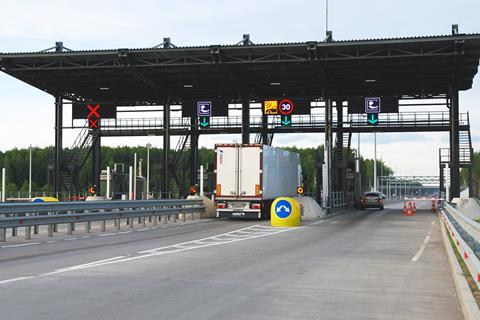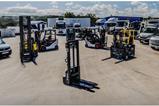Germany has tightened its measures to reduce carbon emissions from trucks with the introduction of a new truck toll CO2 surchage on the the federal highways expected to generate over €30bn in increased tolls.

The new German tolling surchage which came into effect from the beginning of December, impacts all commercial vehicles with a gross weight of 7.5 tonnes or more travelling in the country. The new toll introduces a surcharge of €200 per tonne of CO₂ emitted on top of the existing toll rates. For a heavy Euro-VI approved truck with high CO₂ emissions (CO₂ emission class 1), this translates to an additional cost of up to €0.16 cents per km. The surcharge be extended to include trucks between 3.5 tonnes and 7.5 tonnes from the beginning of July 2024
Zero emission trucks will be exempt from the charges until the end of 2025, thereafter they will receive a 75% discount on the regular fee, along with reduced rates reflecting the noise and air pollution improvements of zero emission trucks.
The German federal government anticipates the new CO₂ component will generate significant additional revenue - projections estimate additional revenues of €30.5bn between 2024 and 2027 - with approximately half allocated to the rail sector, to promote model shift, for the first time.
The road freight sector in Germany expresses concerns over the increased financial burden the new surcharge will bring. Industry representatives highlight challenges such as the limited availability of electric trucks, insufficient funding, and a lack of Charging infrastructure. Recent statements from manufacturers and logistics industry representatives underscore the industry’s sense of being caught between the toll amendment and uncertain funding. In unison, they call for an “immediate course correction in transport and climate policy.”
The central issue revolves around the fact that the CO₂ surcharge on tolls escalates the cost of road freight transport, yet the transition to emission-free drives lacks the intended support through the German KsNI funding programme. Industry representatives stress that while they do not question the CO₂ surcharge itself, the critical aspect lies in the reinvestment of the funds raised. They advocate for a substantial reinvestment in the industry to facilitate the desired change.
Supporting documents
Click link to download and view these filesGerman_toll_rates_01223
PDF, FileSizeText 66.85 kb


















